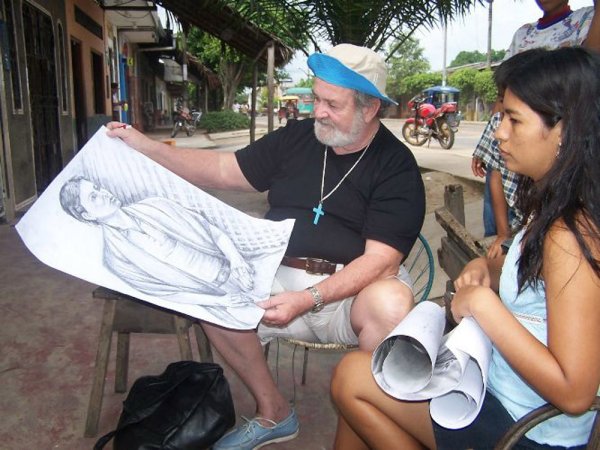
The Hancock-Henderson Quill, Inc.
Already an accomplished artist, Cynthia shows her work to Dr. Norvell, who received a Fulbright grant to help establish The Amazon Basin Institute for Indigenous Arts.
Dr. Norvell, Raising Funds To Assist Emerging Young Artists
by Dessa Rodeffer/Quill Publisher/Owner

Douglass G. Norvell, Ph.D.., son-in-law of former La Harpe principal Harry Bradley of Nauvoo, has made a connection to the Amazon. He has taken his educational talents from Hancock County to the Amazon to assist young people who lack funds but yearn for an educational opportunity in art.
"I went on a fishing trip to Iquitos, Peru one of two major trading towns in the Amazon basin. It is the largest landlocked city in the world which can only be reached by boat or airplane."
"I wanted to buy some local paintings and that is how I hooked up with a young man named Cliver."
Cliver took Dr. Norvell to see the art school, The Victor Morey School of Fine Arts in Iquitos, Peru where there was a 5 year program to obtain a B.A. university degree.
Dr. Norvell found it to be a very old building in need of a lot of renovation. The administration only pays teachers a salary, but there is no building renovation funds, Norvell said and they are badly in need of costly art supplies.
Norvell also became acquainted with the students who had such talent and dreams of becoming artists, yet were very poor.
He said, "You go there and realize how much we have, and how much we don't have.:like the long trip upward to prosperity that they can enjoy.
"We are at 8, 9, and 10s with material positions. They are at 2s and 3s. They get to look back at how far they have risen."
"For Americans, things comes too easily to be valued or appreciated as much.
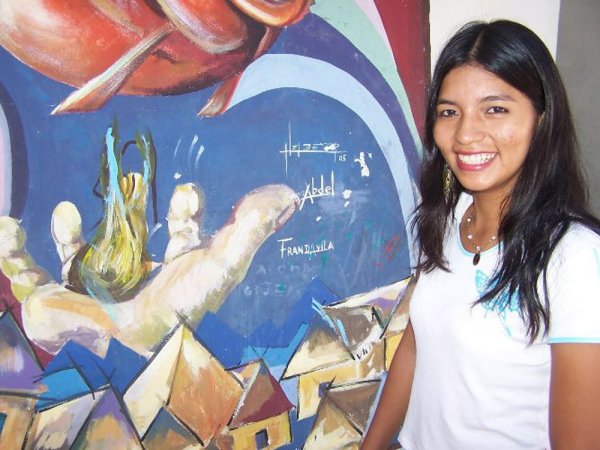
Pictured here is one such student that Dr. Norvell would like to help-Cynthia. Her goal is to go to Europe and sell her paintings.
She lives in a stick house with a dirt floor. She travels each day from her home in the rainforest each morning where her family farms to support her studies.
And another student is Cliver, Cindy's colleague at art school. Cliver is the first one at school. He gets up at 4:00 a.m. and catches a boat each morning to Iquitos and then a bus to school.
At the end of the day, Cliver returns home, where he works on crafts for sale to tourists, while his mother works as a seamstress to help pay for his art supplies.
Art supplies are expensive in the rainforest, particularly oil paints that come all the way from England.
After seeing these things, Dr. Norvell said, "I think I can help."
He returned home and went to Fulbright and make a proposal for a grant - where they could send a senior scholar out on assignment to set up an institute.
He returned to Peru in November and on December 5, 2006 he set up "The
Amazon Basin Institute for Indigenous Arts" as an semi-independent institute.
In this way it would have a separate bank account to keep funds out of the government's hands to insure all moneys would go toward help further the education of young artists.
As well as the institute generating funds for scholarships, for art supplies as well as renovation of the facility, Dr. Norvell is seeking donations.
"So far the only donor to the school has been me," Dr. Norvell said.
The Visiting Artists program will happen during January and February beginning in 2008 when the school is on vacation.
"These artists, coming from North America, Europe, Asia and the other Latin American countries will spend a few days in Iquitos acclimating to life in the rainforest, then move deeper into the Amazon Basin.
Some will rest and purchase art at "Alberques" (Jungle Lodges) with all the amenities of a Paris hotel.
Others will travel along tributaries infrequently visited by outsiders, then enjoy "rough travel" in pursuit of subjects and scenes unspoiled by modern life," Dr. Norvell said.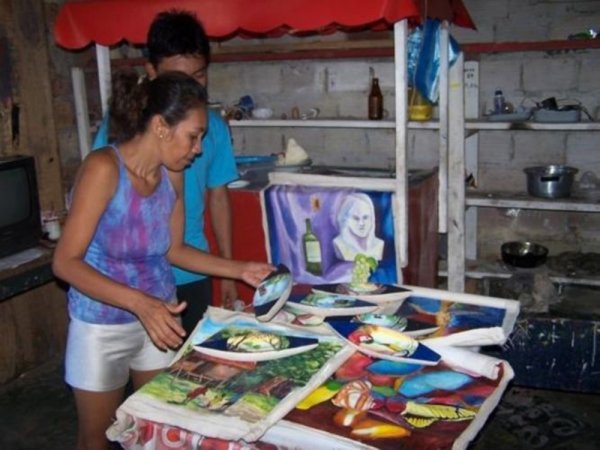
"The Acosta Tourism Company will kick back 25% of their earnings to the Institute which will be used to fix up the facility and provide scholarships."
Dr. Norvell assures that the program is not a charity.
"It's a boot strap, designed to help people to help themselves. It is to help create an environment where they can do so, and hopefully, fulfill their dreams."
Anyone who would like to donate toward Dr. Norvell's endeavors can do so by contacting him by e-mail at dougnorvell@yahoo.com. or by phone at 217-453-6505.
About Dr. Norvell:
Douglass G. Norvell, Ph.D. Economist received his Ph.D. at Texas A (Agricultural Economist) . He is a former W.I.U. professor, was a marketing professional for 25 years in South Carolina and in Illinois and has worked in the Harvard business schools overseas programs.
His wife Mary (Bradley) formerly of La Harpe, is a school teacher at Dallas City Elementary and they live in Nauvoo in Appanoose Township in Hancock County. They have many relatives in the area including Judy Stevenson, art teacher at La Harpe.
About Fulbright:
The Fulbright Program, the U.S. government's flagship program in international educational exchange, was proposed to the U.S. Congress in 1945 by then freshman Senator J. William Fulbright of Arkansas.
In the aftermath of World War II, Senator Fulbright viewed the proposed program as a much-needed vehicle for promoting "mutual understanding between the people of the United States and the people of other countries of the world." His vision was approved by Congress and the program signed into law by President Truman in 1946.
"International education exchange is the most significant current project designed to continue the process of humanizing mankind to the point, we would hope, that nations can learn to live in peace"
-J. William Fulbright
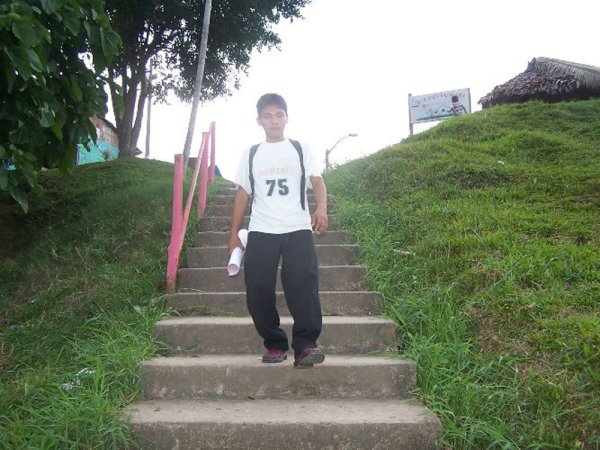
Cliver
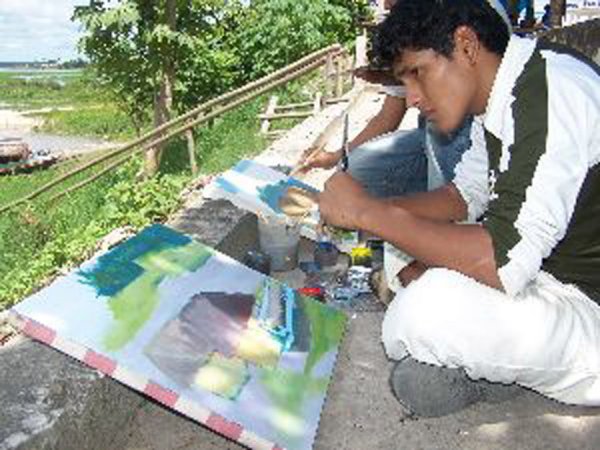
A student of The Victor Morey School of Fine Arts in Iquitos, Peru gather at the river with other emerging young artists to paint.